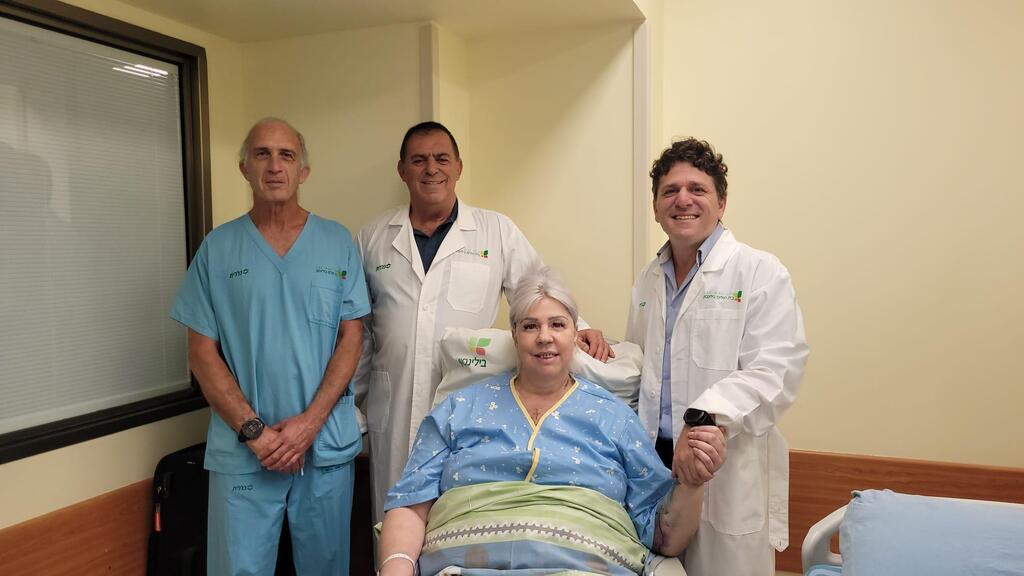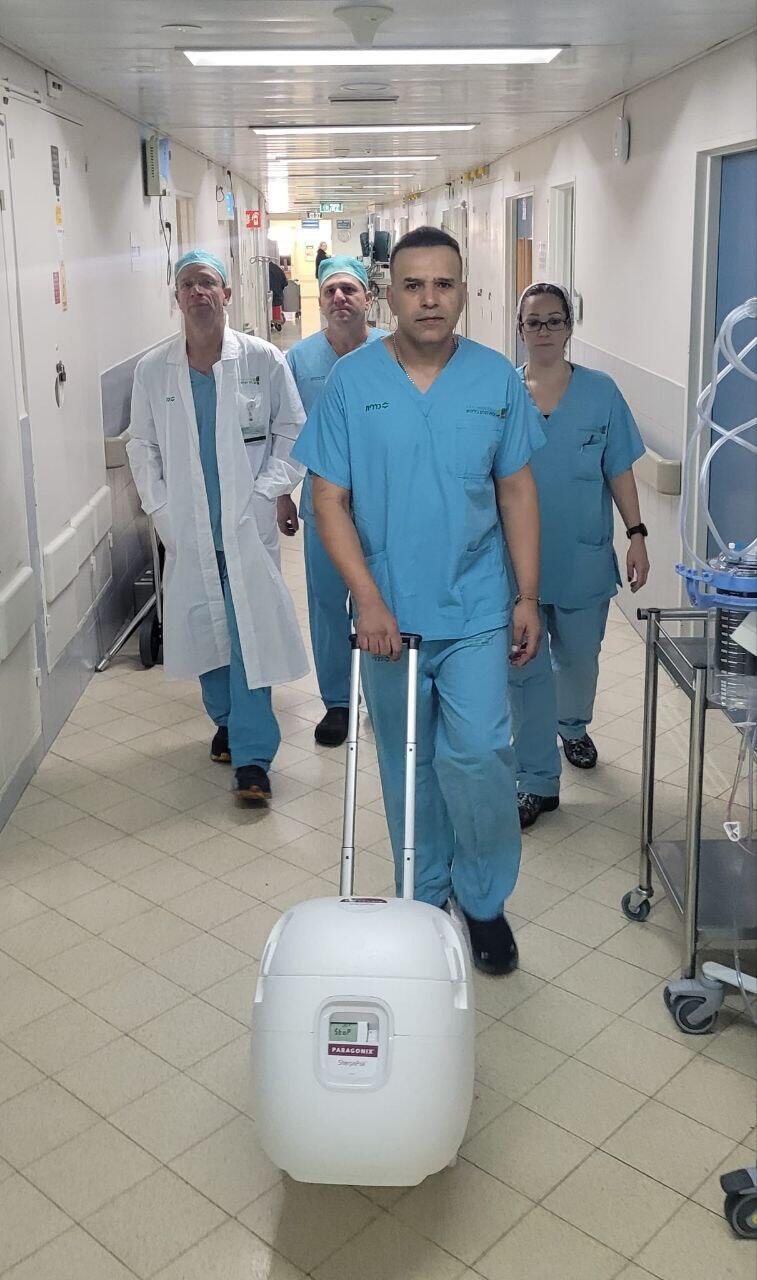Good news for heart patients who need a transplant: A special device called SherpaPak has been used for the first time to transfer organs that allows travel from a greater distance and for a longer period of time to Beilinson Hospital's transplant center. Thanks to SherpaPak, doctors can transport a heart designated for a transplant for six hours, instead of four hours which can make a difference in saving lives. The device has been used in the United States and Europe in recent years, as well as at the Sheba Medical Center by Professor Jeff Morgan.
Read more:
2 View gallery


Dr. Ben Avraham, Dr. Tuvia Ben Gal and Prof. Dan Arvut with a heart transplant patient
(Photo: Beilinson Hospital)
'Opening up for ourselves a new world of distances without cardiac damage'
According to Professor Yaron Barak, director of thoracic transplants at Beilinson Hospital, "we are talking about a passing era."
"For 50 years, we transported hearts in ice. About eight years ago, new technologies began to emerge. This technology makes it possible to transport the heart for longer distances, because the preservation of the heart takes place in a more uniform way. The studies carried out in both Europe and the United States show that it is possible to transport the heart in this device for six hours without causing any damage, so we are opening up a new world of distances for ourselves, and the preservation prevents cardiac damage that the ice could have caused," Barak explains.
"The device has received the Health Ministry's approval, aside from the pre-existing approvals in the U.S. and Europe. The goal in the end is to produce an arsenal of tools for all types of preservation. In the end, the ambition is to provide solutions for all heart transplants. I hope that in Israel we will be able to achieve between 10% and 30%," he said.
In 2022, 32 heart transplants were performed for patients in Israel, compared to 24 in 2021.
In the first use of the device, a heart was transported to Beilinson Hospital from the Galilee Medical Center in Nahariya, approximately 120 kilometers away. The hospital feared the great distance and rocket alert sirens that would delay the transplant, but instead decided to put the device into use earlier than planned. The heart arrived in excellent condition and was successfully transplanted into a 59-year-old man with an artificial heart who had been waiting for a transplant for over three years. The transplant was performed by Professor Dan Arvut, director of the cardiac and thoracic surgery unit at Beilinson, and Dr. Victor Rubchevsky.
The device is already used regularly in leading medical centers in the U.S. and Europe, and it has proven to be successful in extending the heart's time outside the human body by two hours without any consequences for the heart's function.
As a cardiologist, one of the things that is most important to me is that the heart that is transplanted in my patients and saves their lives is in excellent condition.
The SherpaPak, which costs about $10,000 for each use, bolsters the Transmedics device that is already in use in Beilinson. The Transmedics device allows the donor's heart to continue beating all the way to the transplant, thereby allowing the heart to be brought from very far away, including from Europe. It also allows the use of older hearts with excellent results in the transplant.
"As a cardiologist, one of the things that is most important to me is that the heart that is transplanted in my patients and saves their lives, is in excellent condition," said Dr. Ben Avraham, director of heart failure, heart transplants and artificial heart services. "The transplant we performed using the SherpaPak device, along with the data from the leading medical centers that have already adopted the innovative technology, prove that there is a significant improvement in heart function after the transplant, and thus we provide optimal care to our patients."



